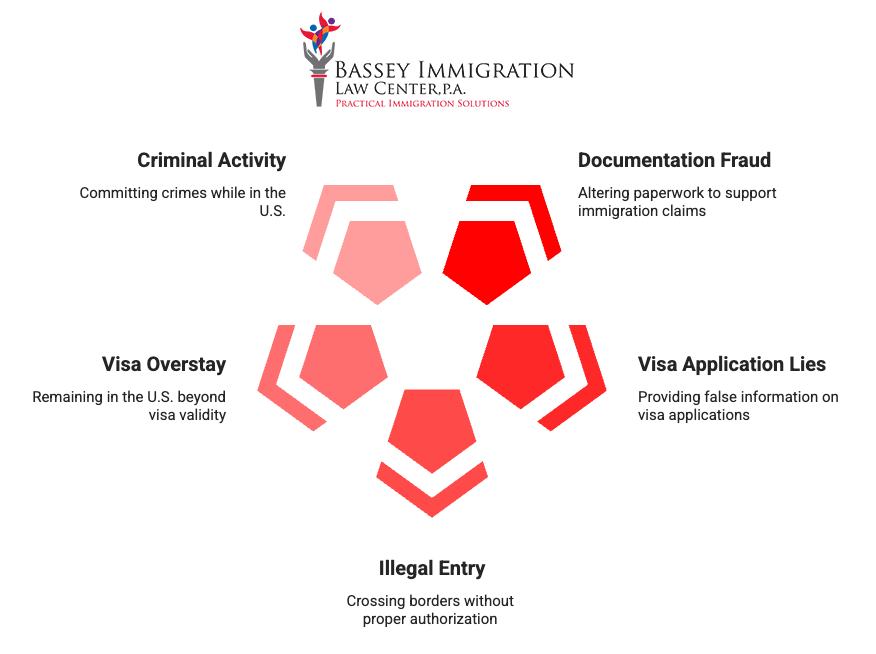Can Deportation Be Waived?
Deportation is not always a final decision. You may have your deportation waived and receive permission to remain lawfully in the United States as a resident. However, immigration laws are complex and constantly changing. Consult a removal defense attorney for up-to-date information and professional legal guidance.
What are Grounds for Deportation?

Immigration to the United States is treated as a privilege, not a right. Consequently, grounds for deportation could range from minor infractions to serious crimes.
Here are some of the most common or likely reasons for deportation:
- Documentation fraud, such as making unauthorized changes to paperwork to suit the evidence needed to build your case.
- Lying on a visa application, such as stating you are divorced when you are still lawfully married in your home country.
- Entering the U.S. illegally, such as crossing the border without using an established checkpoint.
- Visa overstay, such as remaining in America beyond 180 days on a visiting visa.
- Committing a crime while in the United States, such as smuggling.
Waivers of Inadmissibility
The United States may deem someone inadmissible for several reasons. Examples include criminal records, infectious diseases, illegal initial entry into the United States, or polygamy. However, you may pursue a waiver.
There are three main types of waivers that immigration lawyers in Tampa may recommend:
- I-601A Provisional Waivers:These are specifically for people who entered the United States illegally or overstayed their visas.
- I-601 Extreme Hardship Waivers: USCIS does not specify what “extreme hardship” means, but examples could range from financial reasons to physical safety.
- I-212 Waiver Returning After Removal: This waiver is for people who have already been deported from the United States and wish to re-apply for lawful entry.
Eligibility for Waivers
To be eligible for a waiver, you must demonstrate being a low priority for deportation and prove your removal would cause extreme hardship to yourself or your family. USCIS warns you must be physically present in the U.S. to file an inadmissibility waiver. In addition, there are specific requirements that apply on a case-by-case basis.
For example, if you have been convicted of a crime, the Department of Homeland Security may require proof that you have rehabilitated since the incident and changed your behavior.
Or, if you divorced the spouse on whom your residency eligibility depended, you may receive a waiver if there is evidence of domestic violence.
Consult With Our Immigration Lawyers in Tampa
No one wants to face deportation after making the difficult decision to leave their home country behind. It is especially challenging for people who may not have families or homes to return to. Whatever your situation, an experienced lawyer for deportation can review your case and help you determine an appropriate course of action.
We understand your situation because we’ve been there. Contact Bassey Immigration Law Center to see how we can help.
About Bassey Immigration Law Center, P.A.
Bassey Immigration Law Center, P.A., led by attorney Aniefiok Bassey, provides comprehensive immigration services to individuals, families, and businesses in Florida and beyond. With over 20 years of experience, the firm assists clients with a wide range of immigration matters, from family reunification and green cards to business visas and deportation defense. The diverse, multilingual team is dedicated to supporting clients through the complex immigration process, with a special focus on citizenship, asylum, and LGBTQ+ immigration needs. They offer affordable initial consultations and are committed to delivering personalized, strategic guidance for achieving clients’ immigration goals.



